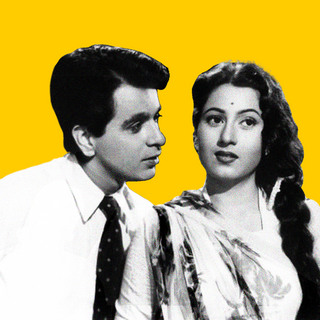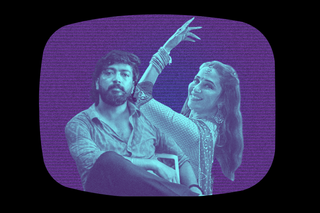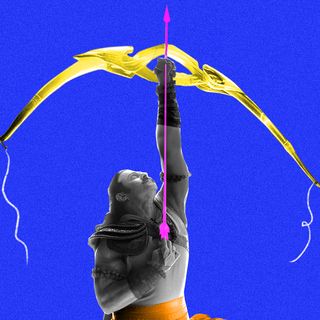
How Queer, Anti‑Caste Narratives in Pop Culture Challenge the Sanctity of the Family
Recent movies like Maja Ma and Natchathiram Nagargiradhu critique how families propagate conservative notions at the cost of individual liberty.

For a large part of Maja Ma, Amazon Prime Video’s latest feature film, Tejas Patel (Ritwik Bhowmik) is concerned with his mother’s reputation in society, and how to protect it — because she’s a lesbian. In Pa Ranjith’s Natchathiram Nagargiradhu, Arjun (Kalaiyarasan), an upper-caste man in love with a Dalit woman Rene (Dushara Vijayan), is threatened with his mother’s suicide.
The two join a canon of Indian films that have begun to critique the Indian family using queerness and anti-caste politics. It’s different from dramas about dysfunctional families — where the latter leaves the structures inherent in dysfunctionality intact, a queer and anti-caste reading allows us to identify the sources: rigid heteronormativity, and caste homogeneity.
Early on in Maja Ma, Tejas’s mother, Pallavi (Madhuri Dixit) is revealed to be a closeted lesbian. She admits it in a conversation with her daughter, a moment that gets filmed without her knowledge and then aired in public. However, instead of treating the matter with sensitivity, Patel and his family members are concerned with his engagement and their family reputation, insisting that Pallavi’s comments were made in jest and could never be true. Even when they do realize otherwise, they react with shame and disgust — asking how Pallavi could ever do such a thing to them.
Maja Ma is one of the handful of movies on queer experiences and expressions featuring mainstream stars that have peppered Bollywood in the last few years. Along with Ek Ladki Ko Dekha To Aisa Laga, Shubh Mangal Zyaada Saavdhaan, Badhaai Do, and web television shows like Four More Shots Please and Made in Heaven, it depicts how queer individuals face violence and aggression — including physical, mental, and sexual harm — from their own families, stifling their confidence and faith even when they move out of such structures. This is a departure from how Indian cinema as a whole has often upheld the family as sacred, unquestionable, and above all scrutiny.
Related on The Swaddle:
‘Shubh Mangal Zyada Saavdhan’ Shows Imperfect, Ugly Process of Unlearning Homophobia
Throughout Maja Ma, Pallavi’s son and husband take her sexuality as a personal affront. Her son at one point browses through possible “cures” for homosexuality, eventually bringing her to a jhadu baba who is supposed to sweep her sexuality out of her. Manohar, her husband, asks her to stop pretending to care for him and expecting him to behave like a husband. Tejas exclaims that he had believed her to be a goddess, but she ended up snatching his faith.
While director Anand Tiwari situates the family’s violence and conservatism in how they choose to treat the mother, other filmmakers and storytellers highlighted how mothers themselves often propagate violence against their children to preserve the family’s conservative traditions — many of which are rooted in maintaining caste homogeneity.
Natchathiram Nagargiradhu — a film dealing with the many socio-political challenges that love has to face — shows how this plays out and, in the process, critiques the idea of family itself. The film, set in a theatre group in Pondicherry, features characters from various walks of life. They differ in their sexual, gender, and caste identities; and consequently, in their politics. One such person, a new member of the group, is Arjun, hailing from a dominant caste Tamil family. While spending time with the people in the theater, Arjun goes through a political transformation, processing with great difficulty and guilt his community’s and family’s role in perpetuating caste purity and hierarchy through caste-based marriages and honor killings.
Resolved to change things, Arjun decides to confide in his mother about being in love with a Scheduled Caste woman, Rene. However, his family members react violently: his male family members thrash him, and his mother threatens to take her life. While the trope of a mother threatening her son with suicide if he dares to go against her isn’t uncommon, it’s seldom been used to explicitly show the mother on the side of injustice. In fact, Indian cinema is known to celebrate the figure of the mother: she is the all-sacrificing, all-caring figure in the family, the locus of the family’s honor and values. Even when she is complicit in tying her son down, she is not seen as a toxic or abusive figure.
But in the greater run, this only perpetuates abuse and normalizes the role that mothers often play in enabling abuse and enforcing conservative values. Moreover, it also dehumanizes the mother herself, refusing to ascribe any other identity or dimension to her existence. As Pallavi mentions to Tejas once she finds confidence in her own self and sexuality, “by believing me to be a goddess, you took away my humanity from me. You refused to see me as someone with flaws and desire.” It changes decades of Indian cinematic narratives: in refusing to deify them, it restores humanity and fallibility to them. A queer and anti-caste reading of motherhood then not only assigns them with their own agency, it also casts them in shades of grey: recognizing their role in perpetuating family violence against an individual’s freedom. In Made in Heaven too, for instance, Kabir’s mother is the one to suppress his sexuality at every juncture of his life — showing the anxiety of how queerness disrupts the heteronormative masculinity that Indian tradition depends on.
Related on The Swaddle:
Aishwarya, Abhishek, and the Glorification of the Indian Joint Family
In 2001, Karan Johar directed and produced Kabhi Khushi Kabhie Gham, a family drama where the adopted eldest son of an upper-caste business family in Delhi is banished from the household for marrying a lower-class girl against his father’s wishes. But even when the eldest son is met with this violence, and even when he is reminded that his blood (translating to his lineage, and caste) is different from his adoptive parents explaining why he went against their wishes, he remains faithful and loving to them in spirit. In the final leg of the film, all is forgiven and Johar’s tagline for the film comes through: “it’s all about loving your parents.” Even when they’re wrong, they’re not wrong. Two years later, director Ravi Chopra sealed this tenet when he made Baghban, forever deifying parents as divine, unquestionable beings.
These are the notions that Ranjith challenges in Natchathiram Nagargiradhu. The Raichands disowning their son in Kabhi Khushi Kabhie Gham for marrying outside his social strata are not very different from Arjun’s upper-caste family that beats him into submission in Natchathiram Nagargiradhu. Only their preferred methods of violence are different. However, in Johar’s movie, the family’s violence rarely counts, and without the explicit statement of how their banishment is rooted in caste and religion, the family is never held accountable for its misdeeds and is never identified as a site of oppression. Ranjith on the other hand is clear in his articulation of the family as not only a perpetrator of regressive thought cloaked under the name of tradition, but also the source of such thought itself.
Families are not infallible structures. Like caste, religion, race, and gender, it too is a social structure that carries its own flaws — and upholds said structures too. It carries power imbalances and equations. But when popular culture depicts them to be beyond any scrutiny or criticism, it normalizes the abuse and toxicity that people are subjected to in their own families in the name of honor and tradition. Queer and anti-caste narratives on families can help break these notions. After all, only identifying them for what they are can equip us with a language to navigate these spaces better.
Amlan Sarkar is a staff writer at TheSwaddle. He writes about the intersection between pop culture and politics. You can reach him on Instagram @amlansarkr.
Related


The Buzz Cut: Religious Film Spirals Into Existential Crisis as Own Community Disowns It
